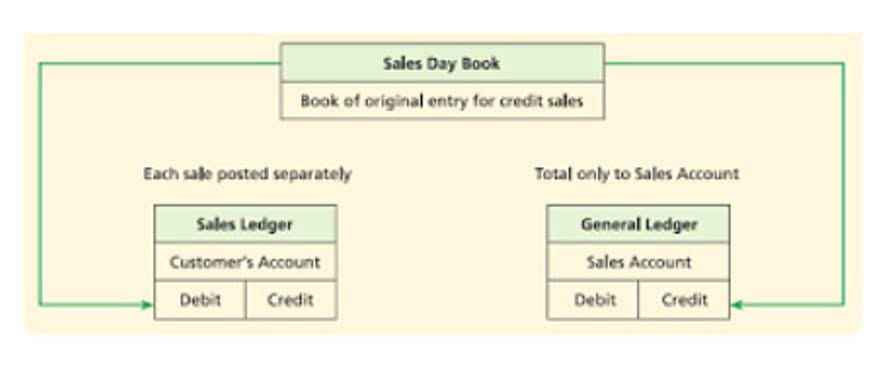
Many companies use a salvage value of $0 because they believe that an asset’s utilization has fully matched its expense recognition with revenues over its useful life. Book value (also known as net book value) is the total estimated value that would be received by shareholders in a company if it were to be sold or liquidated at a given moment in time. Net book value can be very helpful in evaluating a company’s profits or losses over a given time period. Salvage value is also called scrap value and gives us the annual depreciation expense of a specific asset. It must be noted that the cost of the asset is recorded on the company’s balance sheet whereas the depreciation amount is recorded in the income statement. Some methods make the item lose more value at the start (accelerated methods), like declining balance, double-declining balance, and sum-of-the-years-digits.
AccountingTools
- In such cases, the insurance company decides if they should write off a damaged car considering it a complete loss, or furnishing an amount required for repairing the damaged parts.
- This estimation assists businesses in evaluating the potential return on investment (ROI) and the overall financial feasibility of acquiring new assets.
- Sometimes scrap materials can be used as-is and other times they must be processed before they can be reused.
- She has written for numerous personal finance publications including Money Under 30 and The College Investor.
- Salvage value is a critical concept in accounting and financial planning, representing the estimated residual value of an asset at the end of its useful life.
If we imagine that this value would be nil, there would be no chance of any reduction in depreciation. That’s why it’s wiser to go for zero value while applying depreciation on the asset. This means that not only do they get to utilize the asset over its useful life, they also get to recover funds for the asset when they are done using it. If you decide to buy your leased car, the price is the residual value plus any fees. In accounting, owner’s equity is the residual net assets after the deduction of liabilities.
Depreciation Methods

So, when a company figures out how much something will lose value over time (depreciation), they also think about what it might still be worth at the end, and that’s the salvage value of that asset. If the asset is sold for less than its book value then the difference in cost will be recorded as the loss of the tax values. In this situation, the salvage values calculated are less than the book value. Next, the annual depreciation can be calculated by subtracting the residual value from the PP&E purchase price and dividing that amount by the useful life assumption. In some contexts, residual value refers to the estimated value of the asset at the end of the lease or loan term, which is used to determine the final payment or buyout price.
Formula and Calculation of Salvage Value
- A strong example is assets that must adhere to regulatory disposal requirements to remove waste without environmental contamination.
- The impact of the salvage (residual) value assumption on the annual depreciation of the asset is as follows.
- When it comes to vehicles, salvaged or not, an older vehicle is worth less than a newer vehicle.
- A business owner should ignore salvage value when the business itself has a short life expectancy, the asset will last less than one year, or it will have an expected salvage value of zero.
- However, determining the exact value of a salvage vehicle often requires some legwork.
- This software has an initial value of $10,000 and a useful life of five years.
You can find the asset’s original price if the salvage price and the depreciation rate are known to you with the salvage calculator. The car salvage value calculator is going to find the salvage value of the car on the basis of the yearly depreciation value. Enter the original value, depreciation rate, and age of asset in tool to calculate the salvage value. A business owner should ignore salvage value when the business itself has a short life expectancy, the asset will last less than one year, or it will have an expected salvage value of zero. If a business estimates that an asset’s salvage value will be minimal at the end of its life, it can depreciate the asset to $0 with no salvage value. Depreciation allows you to recover the cost of an asset by deducting a portion of the cost every year until it is recovered.
What if the Salvage Value of any Asset is Zero?
Liquidation value is the total worth of a company’s physical assets if it were to go out of business and the assets sold. The liquidation value is the value of a company’s real estate, fixtures, equipment, and inventory. Book value and salvage value are two different measures of value that have important differences. It depends upon the vehicle, its damages and how much it is worth in its current state after it’s determined a total loss. Salvage value is integral in making informed investment decisions, offering insights into the residual value of an asset at the end of its useful life. This estimation assists businesses in evaluating the potential return on investment (ROI) and the overall financial feasibility of acquiring new assets.
How Is Residual Value Calculated?

For the past 52 years, Harold Averkamp (CPA, MBA) hasworked as an accounting supervisor, manager, consultant, university instructor, and innovator in teaching accounting online. For the past 52 years, Harold Averkamp (CPA, MBA) has worked as an accounting supervisor, manager, consultant, university instructor, and innovator in teaching accounting online. Charlene Rhinehart is a CPA , CFE, chair of an Illinois CPA Society committee, and has a degree in accounting and finance from DePaul University.
Investors use salvage value to determine the fair price of an object, while business owners and tax preparers use it to deduct from their yearly tax liabilities. At this point, the company has all the information it needs to calculate each year’s depreciation. It equals total depreciation ($45,000) divided by useful life (15 years), or $3,000 per year. This is the most the company can claim as depreciation for tax and sale purposes. When a company QuickBooks purchases an asset, first, it calculates the salvage value of the asset.
Comparing Salvage Value to Other Values
However, determining the exact value of a salvage vehicle salvage value often requires some legwork. If your vehicle is totaled, the insurance company will assess its salvage value. While there are risks to buying a salvage title vehicle, there are also some benefits.


On the other hand, book value is the value of an asset as it appears on a company’s balance sheet. It is https://www.bookstime.com/ calculated by subtracting accumulated depreciation from the asset’s original cost. If a company wants to front-load depreciation expenses, it can use an accelerated depreciation method that deducts more depreciation expenses upfront.
